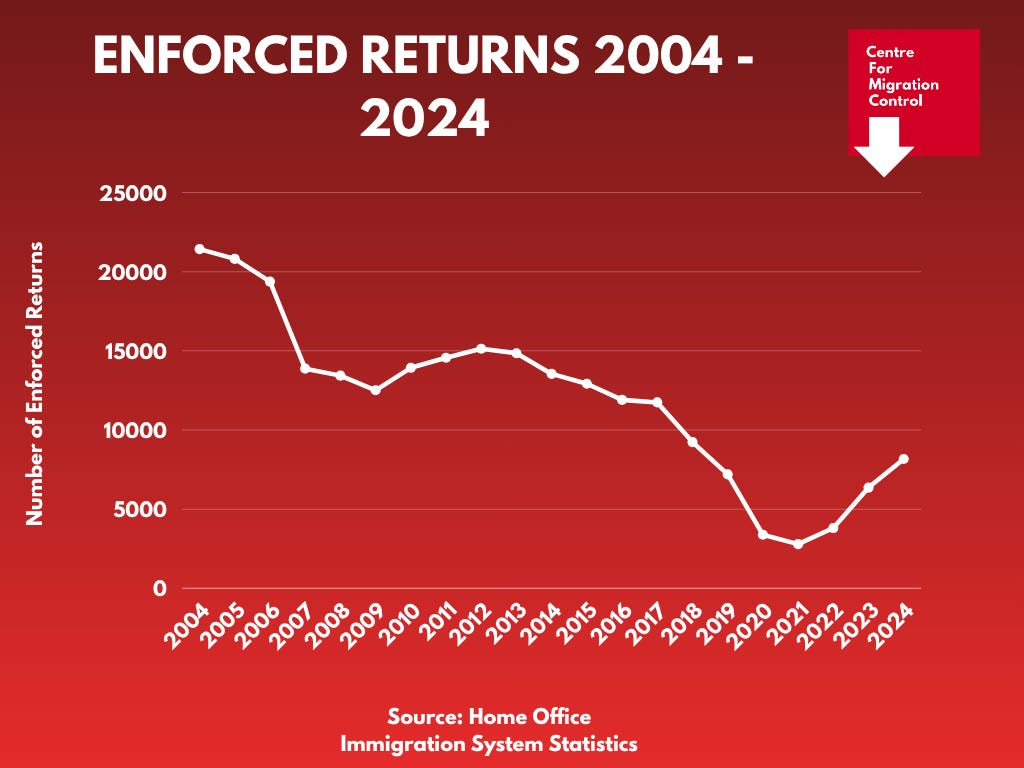Home Office to help deported migrants and foreign criminals set up businesses
The Home Office’s reintegration plans will see illegal migrants and FNOs receive mental health support, education and training, as well as assistance in setting up businesses.
The Home Office is currently looking to procure support for its “Home Office Returns Reintegration Programme” (HORP).
This scheme looks to support illegal migrants and foreign criminals who have either voluntarily returned to their country of origin or, more concerningly, have been deported from Britain.
There was justifiable outrage last month when the illegal migrant and child sex offender, Hadush Kebatu was given a £500 bung to return to Ethiopia.
Other reporting has revealed that foreign criminals who are returning to their country of origin are being paid up to £2,000. These returns are taking place under the Facilitated Return Scheme, which offers criminals and illegal migrants a sum of money so that they agree to return.
They are classified as “voluntary returns” and are often used as a cheaper alternative to fully-fledged deportations, or “enforced returns”, which estimates suggest cost the British taxpayer £15,000.
The number of actual deportations taking place has plummeted in recent years. In 2004, there were 21,425 enforced returns. By 2024, this had fallen to just 8,169, with a nadir during the period of 2020-2022 due to Covid.
The Labour government has been relatively unsuccessful in increasing the number of enforced deportations, having achieved just 9,071 in their first 12 months.
This means when Labour politicians, such as the immigration minister Mike Tapp, claim they achieved “record deportations”, they are lying.
Both centre-right parties in the UK have emphasised that they will look to increase the number of actual deportations undertaken over the course of the next parliament.
However, the fact that the Home Office is now seeking an expression of interest for a government contract (that will run from 2026 until 2028) suggests that we will require a future overhaul of how this process is being managed.
About HORP
Read the early engagement notice here: The Home Office Returns Reintegration Programme (HORRP)
Earlier this month the Home Office put out a call for an expression of interest to gauge potential support from suppliers.
It is made very clear that “the programme supports voluntary and enforced individuals returning from the United Kingdom (UK), including those returning from the community and Foreign National Offenders.”
In other words, those that the UK has had to drag kicking and screaming out of the country will be eligible to receive this support.
The type of support that will be provided includes:
Pre-departure information and airport reception and transportation;
The provision of temporary accommodation;
counselling and mental health support;
signposting to locally available services;
redocumentation;
assistance with setting up a business;
accessing educational opportunities;
and vocational training.
Many in the country will be aghast at the idea that the British government will be paying to support individuals who have either entered our country illegally, or come to our country and been convicted of heinous crimes (such as Hadush Kebatu).
We have no moral or legal duty to support these individuals, and are especially under no obligation to help them access training, set up a business, or provide them with mental health support.
This is particularly pertinent when one considers the trauma that Kebatu’s victim suffered when she discovered that he had received £500 from the British government. She said it was “like he got paid for what he had done to me”.
The Home Office states that it has a responsibility to undertake this reintegration support due to Objective 21 of the United Nations’ Objective 21 of the Global Compact for Safe, Orderly and Regular Migration, a deal that Britain was dragged into by Theresa May. The deal requires Britain to reduce the burden on receiving states and to help support the needs of individuals.
The scheme currently applies to the following countries:
Albania, Bangladesh, Ethiopia, Ghana, India, Iraq, Jamaica, Nigeria, Pakistan, and Vietnam.
The Home Office is looking to extend this provision to: Algeria, DRC, Morocco, Somalia, and Sri Lanka.
This list of countries would mean that in the last 12 months, there would be 16,803 individuals who were returned (either voluntarily or enforced), who would be eligible to receive this support.
The scheme will also siphon off taxpayer money into the pockets of anti-British NGOs and campaign groups that masquerade as charities - giving them further financial firepower to help fight any future policy looking to restrict immigration:
Not only is the Home Office helping foreign rapists, predators, and illegal migrants set up businesses or get mental health support which is often unavailable to their British victims, but is financially supporting groups that fight for open borders.
Extending a financial offering to those who are being deported, not just those who are voluntarily returning, is egregious. It will increase the costs of deportation and undoubtedly act as a further pull factor.





Please…make this make sense! How is it even conceivable that we the tax payer has to pay someone who broke into our country, to leave, then pay for his health care, education, set him up in business in his home country to relieve pressure on his own country by supporting him?
I'd just return them to France and let the French sort it out. After all they're coming from France. If France removed them from the camps in France they wouldn't be able to cross the channel. Instead they allow them to mass.